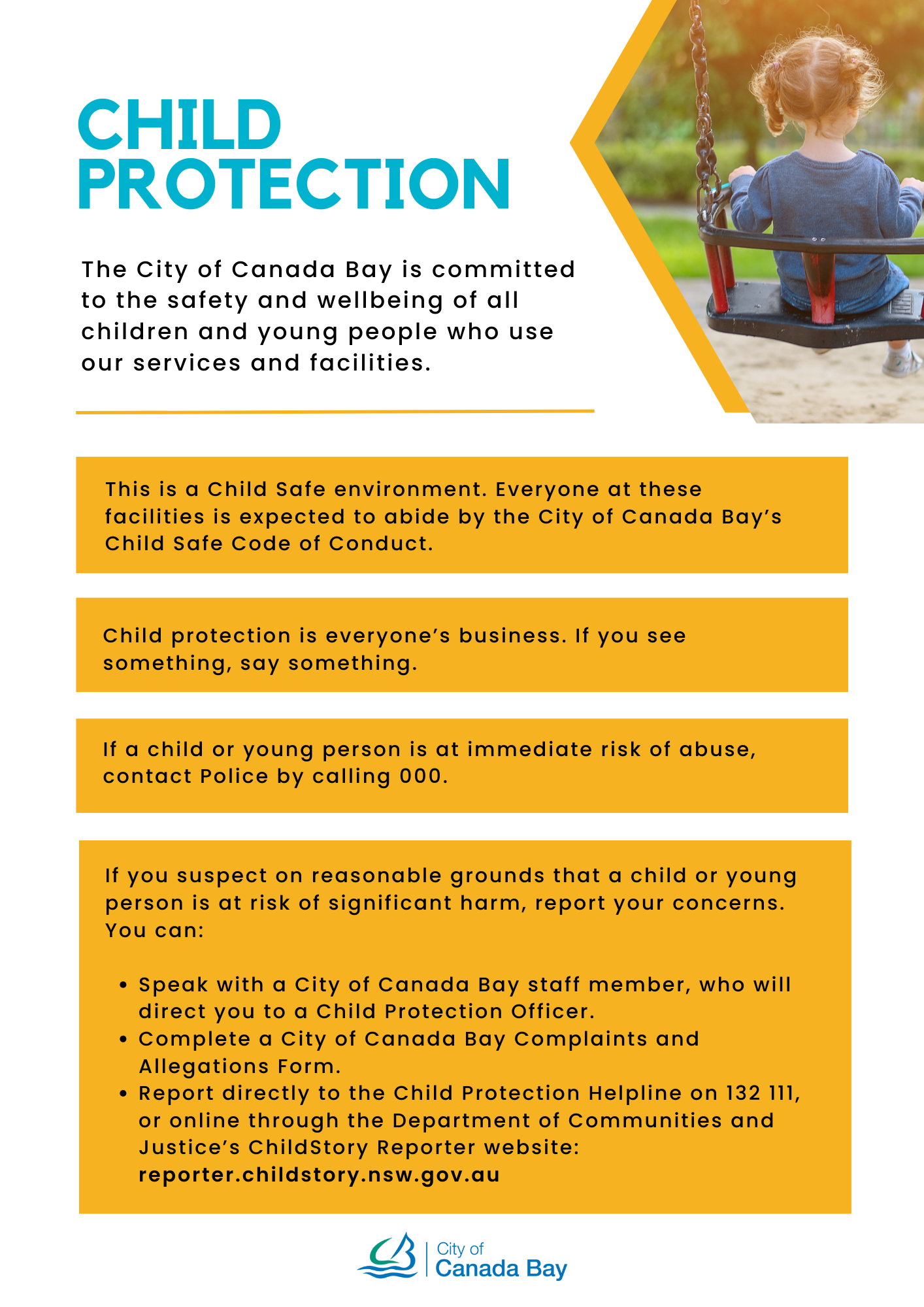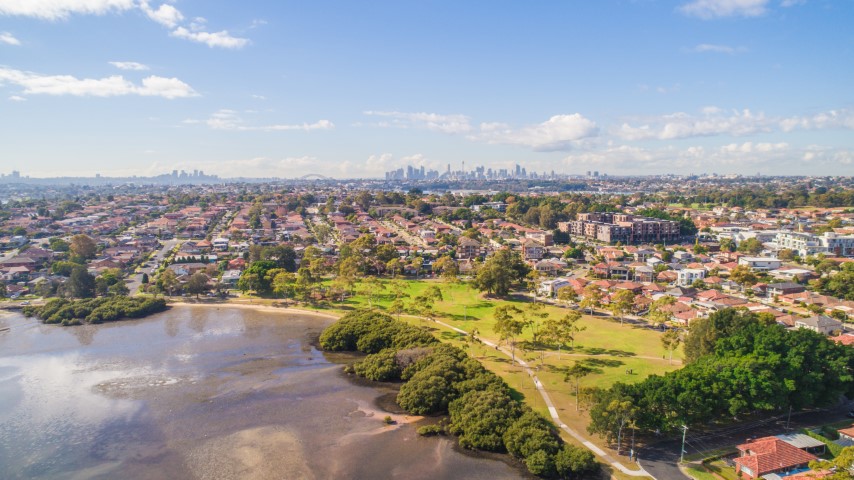Community safety
Breadcrumb
The City of Canada Bay is committed to working in partnership with residents, police, community organisations, the business community, and state and federal governments to ensure the City of Canada Bay is a safe and welcoming place to live, work and visit.
Council’s Community Safety and Crime Prevention Plan 2020-2024 was adopted by Council in November 2020.
The focus of the plan will be to:
- Reduce the incidence of identity fraud
- Reduce incidence of theft from retail stores
- Actively pursue Crime Prevention Through Environmental Design (CPTED)
- Continue to contribute to and support the Liquor Licensing Accord
- Further reduce incidence of theft from motor vehicle
- Further reduce the level of visible graffiti across the City of Canada Bay
- Combat community fears around crime through effective communication.
The City of Canada Bay seeks to deliver a safe and secure local government area into the future. Residents can read the entire plan below.
Click here to view the City of Canada Bay Child Safe Code of Conduct.
All children and young people have the right to feel safe and protected from all forms of abuse, harm, and neglect, as well as the right to a safe, positive, and enjoyable environment.
The City of Canada Bay is a Child Safe Community that recognises and advocates for the rights of children and young people. Our policies and procedures aim to reduce the likelihood of harm to children and to increase the likelihood of identifying and reporting harm and responding appropriately to disclosures, allegations, or suspicions of harm.
We believe it ‘takes a village to raise a child’ and that protecting the vulnerable in our community is everybody’s responsibility, including parents and families, the greater community, non-government organisations and government organisations such as Local Councils.
The City of Canada Bay is committed to the recruitment and training of its staff in being aware of potential issues, seeking to prevent harm and responding appropriately to suspected risks posed to children and young people.
This includes all staff, volunteers, contractors, and partners in the work of the City of Canada Bay. We support the UN Declaration on the Rights of the Child and adhere to the Children and Young Person (Care and Protection) Act 1998 and the Children’s Guardian Act 2019. This is supported by the NSW Office of the Children’s Guardian Child Safe Principles as implemented through the Child Safe Standards and the recommendations of the Royal Commission into Institutional Responses to Child Sexual Abuse Final Report 2017.
Child Safety Complaints
If a child or young person is at immediate risk of abuse, contact the Police by calling 000.
If you suspect on reasonable grounds that a child or young person is at risk of significant harm, you can report your concerns using one or more of the channels below:
- Speak with a City of Canada Bay staff member, who will direct you to a Child Protection Officer
- Call a City of Canada Bay Child Protection Officer on 02 9121 0252 or 02 9911 6561
- Complete a City of Canada Bay Complaints and Allegations Form
- Report directly to the Child Protection Helpline on 132 111
- If you are a mandatory reporter, you can also make a report through the Department of Communities and Justice’s ChildStory Reporter webpage.
You can also read information about making a complaint concerning child protection in the following languages: Korean, Greek, Simplified Chinese, Traditional Chinese and Italian.

Domestic violence prevention and support
Domestic and family violence is when one person in a relationship uses violence or abuse to control the other person. Domestic and family violence is usually an ongoing pattern of behaviour aimed at controlling a partner through fear. Children can also be affected by witnessing domestic and family violence.
Coercive control refers to any pattern of behaviour an abuser uses to dominate their partner and limit their freedom. It can include physical abuse and emotional abuse, but often, coercive control is more subtle. Abusers use coercive control tactics to control their partners through isolation, gas lighting, monitoring and more.
Recognise the signs
Domestic and family violence can happen to anyone. To learn more about recognising if you or someone you know if experiencing domestic violence or abuse in a relationship, visit the NSW Government's Family & Community Services webpage. The below videos from the Office of the Children’s Guardian can also help you learn how to recognise and respond to children being harmed.
Help and support is available
Reach out for help if you are experiencing abuse or domestic and family violence, or to help someone you think may be experiencing abuse.
- Call 000 in an emergency or if there is immediate risk of harm to an adult or child. When you call the police, you can ask for the Domestic Violence Liaison Officer.
- The Domestic Violence Line is available on 1800 656 463 24 hours a day, seven days a week.
- For confidential, information, counselling or support, contact 1800 RESPECT (1800 737 732). This organisation can also help you create a safety plan for yourself.
- FullStop Australia offers confidential, trauma specialist counselling for people of all genders who are impacted by violence and abuse, as well as their friends, colleagues and family members. Call them on 1800 385 378.
- The NSW Ageing and Disability Abuse Helpline can be reached at 1800 628 221.
- For free telephone and web-based counselling, referrals and support for LGBTQI people and their families, contact QLIFE on 1800 184 527, 3pm–12am every day.
Responding to issues relating to children?
- Please call 000 if there is immediate risk of harm to a child.
- The NSW Child Protection Helpline can offer support on 13 2111.
- Family Connect and Support at Barnardos Australia is available on 1800 066 757 daily from 8:30am–5:30pm.
Local police
Burwood Local Area Command/Police Station
Phone: 9745 8499
9 Belmore St, Burwood
Ashfield Police Station
Phone: 9797 4099
14 Victoria St, Ashfield
If you are a victim of a crime, other than life threatening or time critical emergency situations, you can contact the Police Assistance Line on 131 444.
If you witness domestic violence, or if you have concerns for the welfare or safety of a family member, friend, colleague or neighbour, please call Crime Stoppers on 1800 333 000.
Important national numbers for help
- 1800 RESPECT 24/7: 1800 737 732
- Kids Help Line 24/7: 1800 551 800
- Sexual Assault Counselling Australia: 1800 211 028
- Men's Line: 1300 789 978
- Men's Referral Service 24/7: 1300 766 491
- TIS, if you need an interpreter: 131 450
If English is not your first language, you can use the telephone Translating and Interpreting Service (TIS National) to speak to Help Line. TIS National is free and is available 24 hours a day, 7 days a week. Call TIS on 131 450 and ask them to ring one of the Helplines listed below.
If you are deaf and/or find it hard hearing or speaking with people who use a phone, the National Relay Service (NRS) can help you Voice Relay number 1300 555 727 TTY number 133 677
SMS relay number
0423 677 767
Fraud involves obtaining money or other benefit by being deceitful or dishonest. This can include: stealing mail to obtain identification to pose as another person, open bank accounts or apply for credit cards, as well as online hacking and scams to obtain personal information.
The NSW Police provide resources in a number of community languages with tips and information on how to protect yourself online, protect your credit cards and protect yourself against scammers. You can view these resources here.
Stealing from motor vehicles is often an opportunistic crime. Vehicles become a target when there are unsecured valuables and personal items are visible in vehicles.
The NSW Police provides resources in a number of community languages with tips and information to protect yourself from vehicle theft and stealing from motor vehicles. You can view these resources here.

